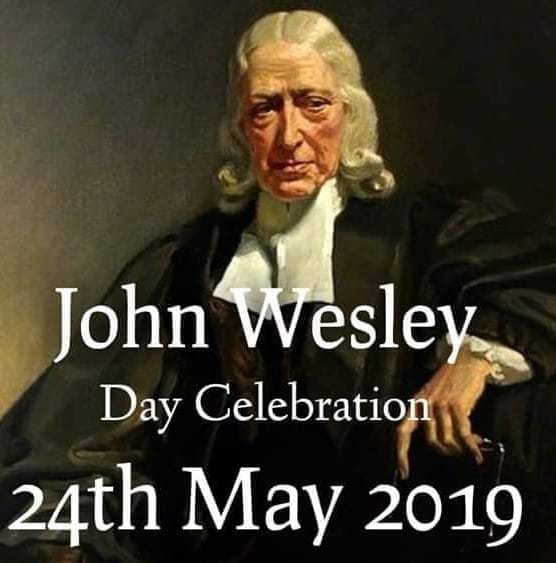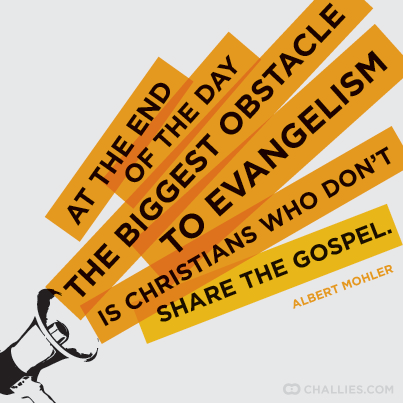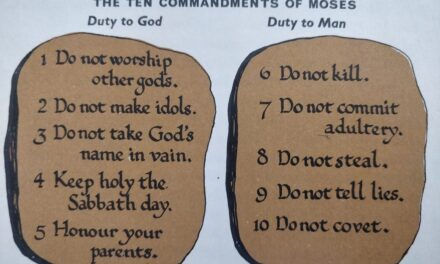I fear, wherever riches have increased, the essence of religion has decreased in the same proportion. Therefore, I do not see how it is possible, in the nature of things, for any revival of true religion to continue long – John Wesley
With the present rate of our general decline especially in conversion of souls, it is possible to say that Methodism salvation experience – Wesley’s Day exists in name only. Methodism as the religion of the Bible which is synonymous with scriptural Christianity was the outcome of the 18th century. The early Methodists practices stimulated and fostered the 18th century spiritual awakening. On the fact and extent of Methodism, H B Workman explained that Methodism has established itself with millions of adherents across the globe especially in the United State of America, Asia, and Africa. In the beginning, great features in the evolution and expansion of the British national life especially ‘the growth and consolidation of the empire and its colonies, including the United States; the organisation of the Parliamentary State, and the beginning of democracy; and the rise of the industrial revolution … contributed to the place and power of Methodism.’
The physical extension of the English race provided a missional opportunities through the values of sea-power hence, ‘a hold upon the greater part of the undeveloped portions of the globe.’ When Methodism was driven out of the Anglican Church, it was a vast opportunity for growth and expansion. According to John Kent in his book Jabez Bunting: The Last Wesleyan, one of the underlying causes of Methodism itself was ‘the problem of the proper oversight of the Ministry.’ According to Kent, ‘for the eighteenth-century Revival had been in part a sharp protest against the flabby spiritual state of too many Anglican parishes, itself the result of a partial breakdown in the oversight of the Ministry.’ Kent explained that ‘the weakness of the Anglican episcopacy’ beyond a theological inability could not ‘welcome Methodism with open arms.’
In the beginning, Methodism spread like a wildfire through field preaching and conversion of souls. The growth and health of the early Methodism could be traced to the impact of Wesley’s Aldersgate experience on Methodist biblical devotionalism. Early Wesleyanism was shaped by a high developed discipline, oversight and control. Methodism was not a loose belief and practice. This central religious experience is what Wesley described as the theology of ‘the way to Heaven.’ The main common theme that shaped the lives of the leaders and members of early Methodism was salvation from ‘the law of sin and death.’ The decline on the doctrine of the Original Sin and the fear of ‘the wrath to come,’ points to a shift in our general orientation. In the seduction of today’s culture when the church has lost the language of conversion and using the words of Gavin Wakefield, ‘conversion suffers bad press, with connotations for many people of compulsion in religion, colonialism, intolerance and even brainwashing.’
Professor Bryan Turner in his 1970 doctoral thesis titled, The Decline of Methodism explained that, Methodism presupposes a system and method of beliefs, involvement in communal scriptural holiness reaffirms and strengthen shared beliefs. According to Turner, Methodist beliefs and practices has been important relationships with Methodist growth and spirituality. The reflection is that, decline of Methodist beliefs, practices, and experience has been the root causes of our membership decline. Under two levels of analysis, Turner examined and historically traced the decline of Methodism in individual religious commitment in the dimensions of belief, practice and experience, and church and leadership organisations. In essence, the neglect and redefinitions of these beliefs and practices to suit the seductions of today’s cultures points to the increasing speed of Methodist decline.
Decline is therefore conceived as departure from the early standard of Methodism especially organisational ‘failure to recruit new members and inability to integrate splinter groups which emerged either in opposition to or in support of ecumenicalism.’ This formed the organisational implication of Methodism withdrawal from revivalism, a ‘shift in emphasis that overtime Methodism became increasingly dependent on an inherited rather than converted membership.’ Conversion became less encouraged and it became less experienced. Methodists decline is first the decline of beliefs, practices and experiences before the decline of membership.
Methodism also faced some missional and spiritual discontinuity through ‘the criticism which embodied itself in the seceding movements, the last of which, the Methodist Free Church, started its separate life in 1857.’ Internal conflicts was to weaken Methodism both internally and externally coupled with loss of members. It is important to note that by 1830, Wesleyan Methodism had become ‘a highly developed organisation for the pastoral oversight of the laity, but in the meantime had neglected to provide equally for the efficient oversight and spiritual direction of the itinerancy.’ Methodism became ‘too litigious by half in the early nineteenth century.’ At a point in time Wesleyanism was dependent ‘upon the somewhat artificial revivalism which was creeping in.’ The development led Jabez Bunting to say to the 1837 Conference that ‘we may excel in getting revival, but we have yet to learn how to manage them.’ The argument is that ‘it is not rant, nor senseless declamation or a profusion of terrific epithets, which is likely to produce a revival … What produce a revival is … plain earnest, forceful utterance of sterling Gospel truth.’ This is done not by artificial stimuli but inspired by the Holy Spirit and by ‘blending more discipline into the enthusiastic ways…’ One major problem in the present situation is church’s inability to recruit new members either by conversion or by training.
The death of Wesley and ‘the increasing power of local, wealthy Methodists gradually undermined the devotional and ritual standards of Methodism. The Methodist ethics of work and leisure were also changed or abandoned in accordance with status and occupational requirement.’ Decline eventually did come to the Wesleyan Methodists and ‘has continued unabated since the dawn of the 20th Century. Using the words of Chris Ritter, ‘today the denomination is on life support.’ Methodist denominations are presently in a place of crisis and divisions as of old especially over issues of biblical authority in relation to human sexuality. The main road into Methodism was through the family and marriage and attempts to redefine these beliefs and practices may amount to a departure from the early biblical standard of Methodism. John Wesley’s fear of a lifeless institution summons contemporary Methodism to reflect on the causes of Methodist decline in our belief, practice, and experience. Wesley said:
I am not afraid that the people called Methodists should ever cease to exist either in Europe or America. But I am afraid, lest they should only exist as a dead sect, having the form of religion without the power. And this undoubtedly will be the case, unless they hold fast both the doctrine, spirit, and discipline with which they first set out. What was their fundamental doctrine? That the Bible is the whole and sole rule both of Christian faith and practice.
Christianity and most especially Methodism is a religion of power and without it, we will not only decline, we are dead (2 Thess 1:11). We can see signs of powerlessness around us. Power is not measure in statistics, budget or programs just as the anointing is not measure in sweat and spit. Christian power is defined by the definite Scriptural text, “But you shall receive power when the Holy Spirit has come upon you; and you shall be witnesses to Me in Jerusalem, and in all Judea and Samaria, and to the end of the earth” (Acts 1:8). We need the power of God for the following: Conversion of sinners (Lk 1:17, Rom 1:16, 1 Cor 1:18,25, 1 Thess 1:5) Spiritual growth and effective Christian living (Rom 15:13. 2 Cor 1:3-4, 2 Tim 1:7, 2 Pet 1:3). Bold and effective witnessing (Acts 1:8). Healing (Lk 5:17, Acts 3:12, 4:7). Defeat of Satan and his kingdom (Lk 4:36). Persevering and overcoming faith (2 Cor 4:7, 2 Cor 12:9, 2 Tim 1:8). Enablement in ministry (Eph 3:7,20)
When we are devoid of God’s power, fictions becomes facts, lies becomes truth. We will attempt to manufacture something that resembles ministry, but it is not true. God empowers ministry (2 Tim 3:5). We will resort to demonstrations of human wisdom, cleverness, and ability in order to imitate the fruits and results of true ministry, but in the end it is just a show (1 Cor 2:4-5). Some substitute the works of Satan and claim they are from God, sometimes unwittingly, but this only brings disorder and disillusionment (2 Thess 2:9, Acts 8:10).
Wesley’s Day celebration invites Wesleyan Methodists in Britain, United States of America, Africa, Asia, Middle East and other parts of the globe to reflect Wesley again. R.C. Sproul said, “You can’t improve upon the Gospel because God put His power there.” Methodism will not be substitute by icon, formality, and allegory. Methodism is just not about Public Relations or church growth schemes and expressions. Methodism is not ‘seculodism,’ a mashup of Methodism and secularism. Methodism came ‘not only in word but also in power and in the Holy Spirit and with full conviction (1 Thess 1:5). The historical and spiritual decline of Methodist commitment and the ‘curtailment of the Methodist emphasis on personal experience and the undermining of disciplined personal and public practice resulted in uncertainty of belief.’ In essence, the ongoing Methodist redefinitions and abandonment of our beliefs, practices and experience may produce further decline. In Modern Methodism, beliefs which delineate the state of sin have been greatly weakened. For example, a central belief of Wesleyanism, the fears of Original Sin no longer trouble present day Methodists. Using the words of Turner, it could be argued that the present day Methodists have more commitment to the problem of what might be termed “present sin.” The reflection is that, ‘the church that does nothing to stop this slide into moral crisis and atheism ultimately contributes to it.’ The Aldersgate experience of the Wesleys which allowed them full assurance of their heavenly acceptance is no longer a salient feature of modern Methodism. Wesley’s Day calls for the search for certainty and security back onto personal experience











Recent Comments